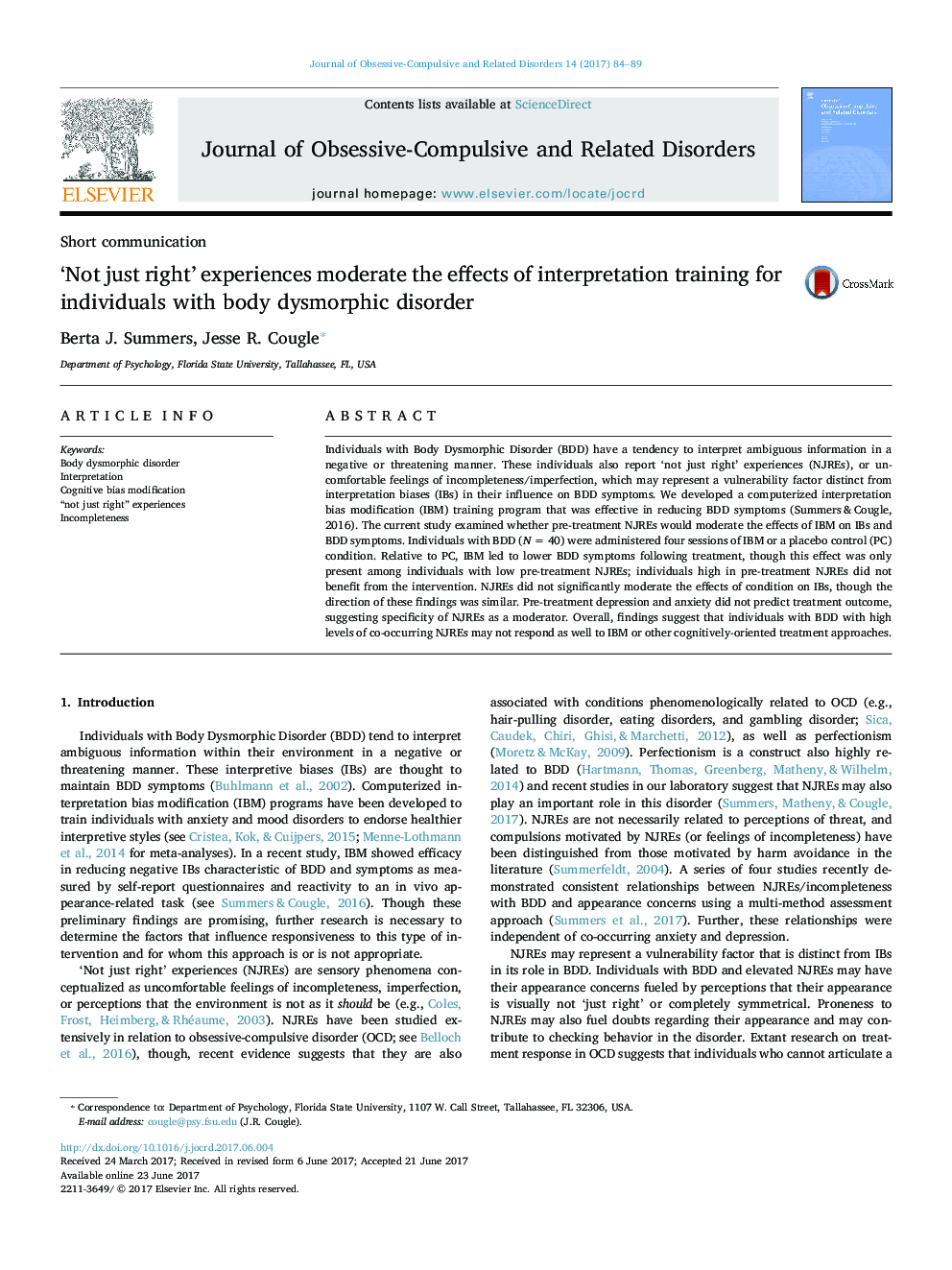| Article ID | Journal | Published Year | Pages | File Type |
|---|---|---|---|---|
| 5039330 | Journal of Obsessive-Compulsive and Related Disorders | 2017 | 6 Pages |
â¢Tested whether NJREs moderate the effect of computerized IBM training for BDD.â¢IBM led to lower BDD symptoms only among those low in pre-treatment NJREs.â¢NJREs did not moderate effects of condition on interpretation bias change.â¢Findings underscore the potential importance of NJREs to BDD phenomenology.â¢Elevated NJREs may represent a barrier to cognitively-oriented treatment for BDD.
Individuals with Body Dysmorphic Disorder (BDD) have a tendency to interpret ambiguous information in a negative or threatening manner. These individuals also report 'not just right' experiences (NJREs), or uncomfortable feelings of incompleteness/imperfection, which may represent a vulnerability factor distinct from interpretation biases (IBs) in their influence on BDD symptoms. We developed a computerized interpretation bias modification (IBM) training program that was effective in reducing BDD symptoms (Summers & Cougle, 2016). The current study examined whether pre-treatment NJREs would moderate the effects of IBM on IBs and BDD symptoms. Individuals with BDD (N = 40) were administered four sessions of IBM or a placebo control (PC) condition. Relative to PC, IBM led to lower BDD symptoms following treatment, though this effect was only present among individuals with low pre-treatment NJREs; individuals high in pre-treatment NJREs did not benefit from the intervention. NJREs did not significantly moderate the effects of condition on IBs, though the direction of these findings was similar. Pre-treatment depression and anxiety did not predict treatment outcome, suggesting specificity of NJREs as a moderator. Overall, findings suggest that individuals with BDD with high levels of co-occurring NJREs may not respond as well to IBM or other cognitively-oriented treatment approaches.
